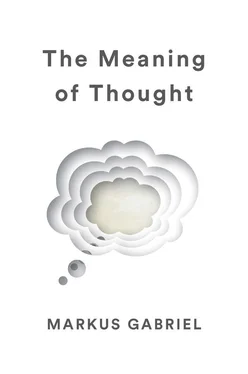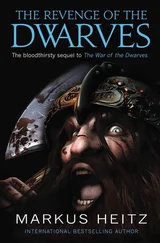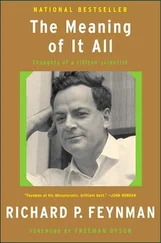The truth certainly lies somewhere in the middle. The infosphere and the digital revolution aren’t leading us towards a dystopian future, such as the world depicted in the Terminator films or in novels such as Michel Houellebecq’s The Possibility of an Island ; nor does the latest leap forward in technological progress lead towards the solution to all of humanity’s problems, contrary to the hopes that the German tech entrepreneur Frank Thelen (b. 1975) expressed in a dialogue between the two of us in the German Philosophie Magazin . 5We will not solve the impending crises of food and water shortages through better algorithms and faster computers. Thinking we will is really to get things back to front: it is technological advancement in the digital industries – i.e. attaining higher computing power through more efficient hardware – which contributes to resource scarcity and world hunger – and not only because of the alacrity with which we bin our ‘old’ smartphones and tablets so that we can buy the latest versions with their ever higher processing power. Computers do not solve our moral problems; they aggravate them. We mine the earth in poorer parts of the world to extract rare metals for our smartphones, use plastics for our hardware, and waste untold quantities of energy in order to keep digital reality running twenty-four hours a day, seven days a week. Every click and every email uses energy. We tend to notice this only indirectly, but that doesn’t make things any better.
To be sure, technological progress can mean rapid improvements in medical science and living conditions in industrialized countries. But, at the same time, we are currently experiencing the collateral damage wrought by the digital transformation of our infrastructure, in the form of cyber-warfare, fake news, large-scale cyber-attacks and the rest. And that’s not to mention the varieties of social alienation caused by social media’s erosion of the distinctions between public and private, between times when we’re available and times when we’re not. Then there are the obviously very real phenomena of phone-tapping scandals (in the Obama era); Twitter propaganda (in the Trump era); bots that undermine democracy; terror attacks hatched online; a terrifyingly extensive surveillance apparatus in the People’s Republic of China, which monitors and sanctions the population’s online behaviour; and so on and so on.
In order to untangle the conceptual knot, I will be working in what follows with two anthropological principles, both of which will come up time and again. I mentioned the first anthropological principleat the outset: the human being is the animal that doesn’t want to be one. This principle explains the presently widespread confusions that go by the names of post-humanism and transhumanism. Both movements are built on bidding farewell to the human being and welcoming the cyborg, a hybrid combining both animal-human and technological components.
Post- and transhumanism, both especially rampant in California, propagate the view that the human being can be overcome, surpassed. The place of the human is to be occupied by the infamous Übermensch , first conjured up by Friedrich Nietzsche (1844–1900). In a society in which an ever-expanding collection of superheroes has become a staple of popular culture, in which Hollywood propagates the fantasy that we might shake off the earthly shackles that tie down us normal mortals and propel ourselves into a superior future, it is no accident that technology and scientific research find themselves in thrall to the Nietzschean fantasy of the Übermensch .
In this connection, the French sociologist Jean Baudrillard (1929–2007) reminds us of the notorious rumour that Walt Disney tried to have himself cryogenically frozen, hoping to be awakened one day in order to witness the technological wonders of the future. 6One of the main problems animals have to face is that they are mortal. Everything mortals do revolves around life and death, whereby we find life for the most part good and death for the most part bad. For a long time now, technology has been bound up with the fantasy of overcoming death on Earth. Today, this (pathological) wish finally to discard our animality and to become an inforg, a cyborg consisting purely of digital information, affects every level of society.
If we can dissolve ourselves into information, it is seemingly possible to install our minds onto some superior hardware, to upload consciousness and our personality onto digital devices. This idea is brilliantly explored in the American TV series Westworld . The series is set in a futuristic theme park called Westworld, in which visitors encounter robots indistinguishable from humans. The humans can use them entirely for their own pleasure. In the second series (spoiler alert …) it transpires that the firm operating the theme park extracts behavioural data from the visitors, which they then use to perfect the robots. Behind the entire enterprise is the mind of Westworld’s creator, which has been uploaded onto a server and plans to co-opt one of the perfected robot bodies, thus merging inforg and cyborg. But this whole fantasy could never in fact be realized. Let’s not forget that the TV series Westworld does not show us a single robot. What we actually see are human actors playing robots who at some point begin to play humans! This is the reality displayed by Westworld : the human wish to become a robot who becomes human.
To combat this flight from reality, I make the case for an enlightened humanism. Enlightened humanism is based on an image of the human that, from the very outset, allows no room for doubt that everyone, whether foreigner, native, friend, neighbour, woman, child, man, coma patient or transsexual, counts as human in the full sense. This is important to emphasize, because the classical humanist positions developed since the Renaissance have usually, implicitly or even explicitly, taken white, European, adult, politically significant and well-to-do men as the standard of being human. Even Kant’s writings are unfortunately filled with racist and misogynistic assumptions, which is why in practice he denies people who were deeply foreign to him, such as the inhabitants of the southern hemisphere, their humanity, explaining for example how ‘humid warmth is beneficial to the robust growth of animals in general and, in short, this results in the Negro.’ 7Yet Kant is by no means just a racist. He is above all a theorist of the universal dignity of human beings, which raises the question of how he could combine both sets of views in a single personality. The good news is that we enlightened humanists of the twenty-first century need not follow him, as we are the heirs of moral progress and of insights into the disastrous shortcomings of the first-wave enlightenment project – a project that was deeply implicated in other pathologies of modernity (such as colonialism). However, none of this entails that moral universalism is flawed, as one of the verdicts of universalism is precisely that colonialism, violent Eurocentrism, racism, and so on, are morally unacceptable forms of radical evil.
The second anthropological principlesays that the human is a free, specifically minded animal ( freies geistiges Lebewesen ). This means that we humans can change ourselves by changing our image of what it means to be human. The specific freedom of the human mind lies in how our human life form is self-determining. We define our being human, and on the basis of our self-definitions we discover the moral values around which to orient our actions. Other animals have only a dim understanding of morality, and they certainly do not participate of their own accord in the enlightenment project of moral progress. There is absolutely no gender equality in most animal societies, and there is not even a hint of the notion that they should cooperate in order to help foster other species. Cooperation in the animal kingdom is typically a matter of symbiosis and not of rule-governed moral thought designed to enhance the living conditions of everyone. Lions do not consider becoming vegetarians, and we do not blame them for their culinary preferences, because we know that they lack a sufficiently explicit grasp of the standing possibility of moral insight and perfectibility.
Читать дальше










